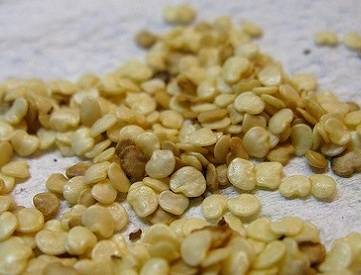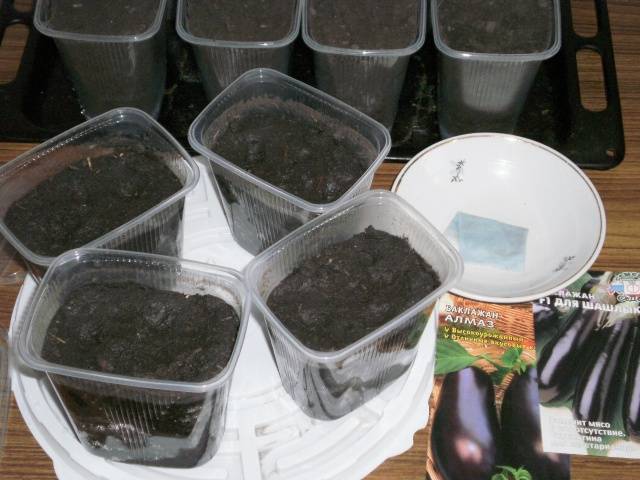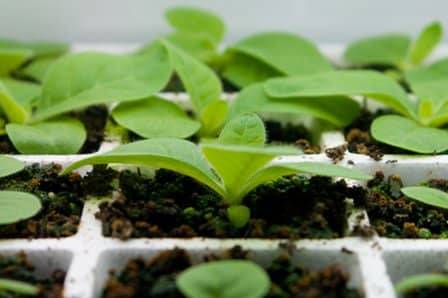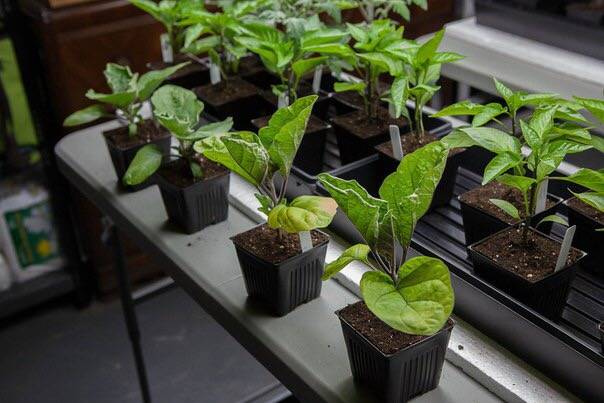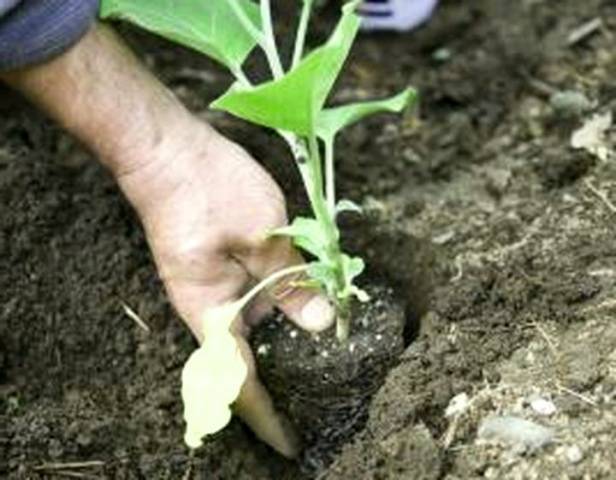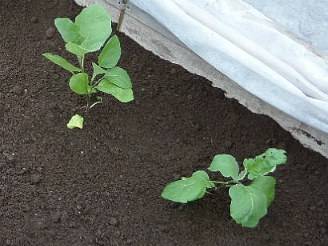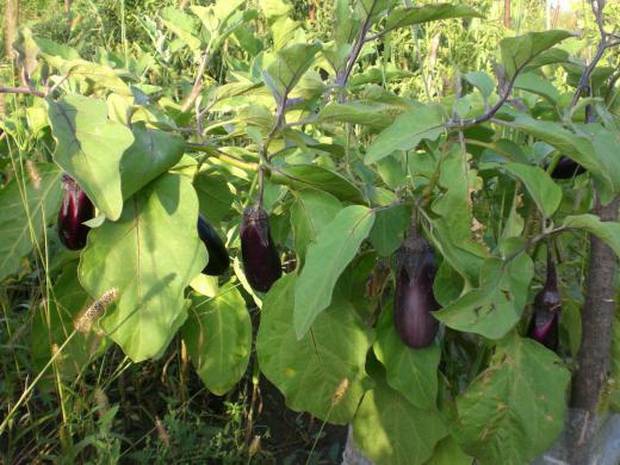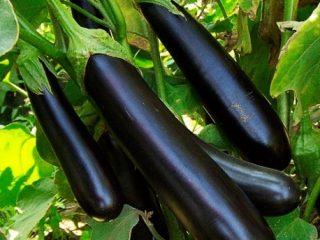Content
Eggplant is native to South Asia and India. However, despite the exoticism and heat-loving nature, the vegetable is also grown in their gardens by domestic farmers. Moreover, a wide selection of varieties allows you to grow crops not only in greenhouses and greenhouses, but also in the open field. To do this, in early spring, farmers germinate and sow seeds, carefully look after the crops, and with the onset of favorable weather they begin to pick eggplant seedlings into open ground. This method of cultivation requires a special approach, since the plant is quite whimsical, reacts negatively to temperature changes and transplantation. So, you can find out the basic rules and some secrets of growing eggplants in the open field below in the article.
The best varieties for open ground
Not every variety of eggplant can be grown successfully outdoors. So, breeders offer more than 200 varieties for unprotected conditions, which are able to painlessly endure sudden changes in day / night temperatures and short-term cold snaps. Such eggplants are characterized by a relatively short period of fruit ripening and resistance to various diseases.
Based on the opinions of farmers and reviews, comments from experienced farmers, we can safely highlight the top five varieties of eggplant for open ground.
So, the TOP-5 includes varieties Epic f1, Valentina, Bourgeois f1, Vera, Destan f1... These varieties and hybrids are characterized by low bushes, early / mid-early ripening, as well as high yields and excellent taste of vegetables.
Also, when choosing eggplants for open ground, you should pay attention to the varieties Almaz, Bibo f1, Helios, Clorinda f1, Fabina f1 and some others. They can be grown both in open and protected ground.
Time for sowing the seed
Having chosen a suitable variety of eggplant, it is necessary to determine the time for sowing its seeds for seedlings. In this case, it is worth considering the climatic features of the area, the growing season of the culture. For example, the popular hybrid "Epic f1" actively bears fruit in just 64 days from the moment of germination. This means that in central Russia, seeds for seedlings must be sown at the end of April and already at the beginning of June young plants can be dived into open ground. Seeds of varieties "Valentina", "Bourgeois f1", "Vera" have a ripening period of approximately 100-110 days, therefore, seeds for seedlings should be sown in late March - early April.
It is worth noting that in the southern regions of the country, where a stable summer temperature is established in early to mid-May, sowing seeds and picking plants in open ground can be carried out earlier stated above.
Seed preparation and sowing
Eggplant seeds must be germinated before sowing for seedlings. To do this, you should:
- disinfect the seeds by immersing them in a manganese solution for 10-20 minutes;
- put the seeds treated with manganese on a piece of cloth or gauze, moisten the material with warm (+ 30- + 350With water;
- immerse a damp cloth in a plastic bag, tying it tightly;
- immerse the bag in a warm place;
- plant the seeds after the sprouts appear.
Eggplants have a poorly developed root system, therefore, it is better to plant the seeds of this culture for seedlings immediately in separate pots, 1-2 seeds each. It is recommended to use peat pots or tablets as containers for growing.Small plastic bags, flexible plastic cups are also suitable.
Despite the recommendations, some farmers still prefer to sow sprouting eggplant seeds in one large container. This method of cultivation involves picking plants in separate pots at the stage of the appearance of two true leaves on the shoots. With such an intermediate pick, the roots of eggplants, the length of which exceeds 1 cm, should be pinched in order for the plants to take root better.
Soil for growing eggplant seedlings should be light. You can prepare the soil yourself by mixing garden soil with peat, river sand and organic matter. A complex of mineral fertilizers can be added to the total mixture. If necessary, the soil for the cultivation of eggplant seedlings can be purchased ready-made in specialized stores.
Growing seedlings
Containers with sown germinated seeds should be covered with foil or protective glass and left warm until germination appears. As soon as the sprouts have hatched through the soil, the containers should be placed in a lighted place. With a lack of light, plants can be illuminated with fluorescent lamps. The optimum light period for seedling growth is 12 hours.
Watering eggplant seedlings in the early stages of growing should be done 1-2 times a week. As the plants grow, it is necessary to moisten the soil more often. It should be remembered that eggplant is particularly demanding for watering.
Seedling eggplant when there is a lack of light, it stretches excessively upward. This situation can be eliminated by installing reflective materials (mirrors, foil) around the perimeter of the surface on which the containers with plants are located. This will allow the large eggplant leaves to be illuminated in sufficient quantity, making the sprouts even, equally leafy on all sides.
It is necessary to fertilize seedlings once every 2 weeks. For feeding, you can use mineral complexes with a high nitrogen content, which helps to accelerate the growth and development of the green mass of eggplants.
Seedling picking
It is necessary to plant eggplant seedlings in a well-lit, sunny place. To prevent shading around the perimeter of the ridges, you should plant low-growing crops, for example, onions, carrots or sorrel. The best precursors for eggplant are legumes, melons, onions, carrots, cabbage. At the same time, it is possible to plant eggplants in the soil on which nightshade crops used to grow no earlier than after 3 years.
2 weeks before the expected picking, it is necessary to start hardening the seedlings. To do this, pots with plants are taken out into the street, first for 30 minutes, then gradually increase the time until full daylight hours. This will allow the eggplant to adapt to outdoor temperatures and direct sunlight.
Given the differences in the climate of the regions, it is impossible to name a specific date for picking seedlings in open ground. So, each farmer must choose the best time for disembarkation by himself, taking into account the following features:
- eggplants grow and form ovaries abundantly only at temperatures above +200FROM;
- even the most short-term, minor frosts are detrimental to young seedlings.
At the time of planting eggplants in open ground, seedlings should have 5-6 true sheets. The age of the seedlings, depending on the duration of the fruiting period of a particular variety, can be 30-70 days.
It is necessary to dive eggplants into open ground in compliance with a certain distance, which depends on the height of the bushes. So, plants with a height of more than 1 meter are planted no thicker than 3 pcs per 1 m2 soil. Low-growing eggplants can be planted in 4-5 bushes per 1 m2 soil.Failure to respect the distances between plants can lead to shading, the development of diseases, and as a result, to a decrease in yield.
The soil for planting plants should duplicate the composition of the substrate in which the seedlings were cultivated. "Lean" garden soil can be flavored with organic matter. Manure infusion, well-rotted compost, is often used as an organic top dressing.
About an hour before planting the eggplants, the ridges and the seedlings themselves must be watered. Sprouts from plastic (polyethylene) containers must be removed very carefully, keeping a clod of earth on the vine. Peat containers must be embedded in the soil without removing the plant.
In pre-prepared holes, the plants are immersed to such a depth that the cotyledonous leaves of the eggplant are in the soil. The holes, with the seedlings inside, are covered with soil, slightly compacting it. Additional watering of eggplants dived into open ground is not required.
When growing heat-loving plants in open ground in central Russia, as well as in the northern regions, in Siberia and the Urals, immediately after planting, it is recommended to cover the eggplants with polyethylene using arcs. It is possible to remove the polyethylene shelter only when night temperatures exceed +150C. As a rule, such warm nights are established after June 15th.
Plant care
Caring for dived plants consists in regular watering, feeding and loosening:
- watering the eggplants before flowering should be 1 time in 6-7 days. In extremely hot weather, the frequency of watering can be increased;
- in the process of flowering and fruiting, the culture should be watered 2 times a week;
- the volume of water during irrigation should be 10-12 liters per 1 m2 soil;
- plants should be watered after sunset directly under the root;
- the temperature of the water for irrigation must be above +250FROM;
- loosening simultaneously with weeding should be carried out as needed, but at least 4 times during the entire growing season;
- eggplant feeding should be carried out every 2 weeks using manure infusion or special mineral complexes.
More detailed information on caring for eggplant outdoors can be found in the video:
Growing eggplants outdoors is not at all difficult if you know and follow all the rules of cultivation. So, it is especially important not only to choose a suitable variety, but to grow healthy strong seedlings from seeds that will successfully adapt to new outdoor conditions, take root in the soil without a long stop in growth. The successful planting of eggplant seedlings in open ground is also a step towards obtaining a rich harvest of tasty and healthy vegetables. After picking seedlings, it is important to focus your efforts on adhering to the schedule of watering and feeding, since only with a sufficient amount of moisture and micronutrients, the culture is able to fully bear fruit.

